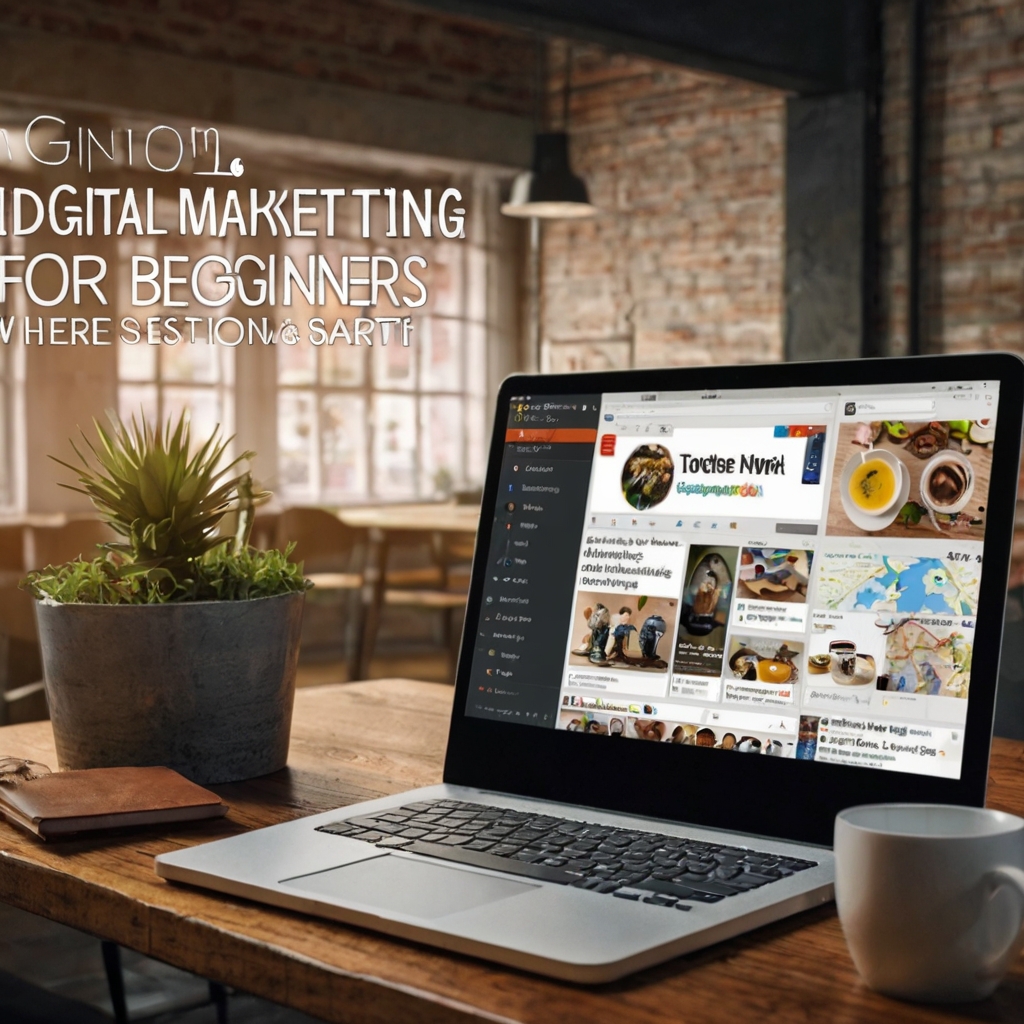
1. Introduction to Digital Marketing.
- What is Digital Marketing?
- Digital marketing refers to the use of online channels, tools, and strategies to promote products and services. This includes websites, social media, email, search engines, and more.
- Importance of digital marketing in the current business environment: It enables businesses to reach a broader audience, engage with customers in real-time, and measure the effectiveness of their campaigns.
- How digital marketing differs from traditional marketing: It is more cost-effective, offers better targeting and personalization, and provides immediate feedback and analytics.
2. The Core Elements of Digital Marketing
- Overview of SEO, Content Marketing, Social Media, Email Marketing, and PPC
- Brief introduction to each core element:
- SEO (Search Engine Optimization): Enhancing a website to rank higher in search engine results.
- Content Marketing: Creating and sharing valuable content to attract and engage an audience.
- Social Media Marketing: Using social media platforms to promote products and engage with customers.
- Email Marketing: Sending targeted emails to nurture leads and build customer relationships.
- PPC (Pay-Per-Click): Paid advertising to drive traffic to your website.
- How these elements contribute to a successful marketing strategy: Each element plays a unique role in driving traffic, generating leads, and converting customers.
- Brief introduction to each core element:
3. Getting Started with Digital Marketing
- Setting Your Goals
- Importance of having clear, measurable goals : Goals guide your strategy and help you measure success.
- Examples of digital marketing goals: Increase website traffic, boost online sales, improve brand awareness, generate leads.
- Understanding Your Target Audience
- Techniques for identifying and understanding your target audience : Use demographic data, customer surveys, and online analytics.
- Role of buyer personas in digital marketing: Create detailed profiles of your ideal customers to tailor your marketing efforts.
- Conducting a Competitive Analysis
- Importance of analyzing competitors’ digital marketing strategies: Understand what works in your industry and identify opportunities for improvement.
- Tools and methods for conducting a competitive analysis in digital marketing: Use tools like SEMrush, Ahrefs, and social media monitoring.
4. Building Your Online Presence
- Importance of a Well-Designed Website
- Role of a user-friendly, optimized website in digital marketing: Your website is the hub of your digital marketing efforts and should provide a seamless user experience.
- Key elements of an effective website design: Mobile-friendliness, fast load times, clear navigation, and compelling visuals.
- Basics of Website Optimization
- Importance of website speed, mobile-friendliness, and user experience in it : These factors affect your search engine rankings and user engagement.
- Basic SEO techniques for website optimization : Optimize meta tags, use alt text for images, and create high-quality content.
- Creating and Maintaining a Blog
- Role of a blog : Blogs help drive organic traffic, establish authority, and engage your audience.
- Tips for creating valuable and engaging blog content in digital marketing: Focus on relevant topics, use keywords strategically, and provide actionable insights.
5. Search Engine Optimization (SEO)
- Importance of SEO in Digital Marketing
- How SEO helps in improving visibility and driving organic traffic : Higher search rankings lead to more visibility and clicks.
- Basic SEO Techniques
- On-page SEO : Keyword optimization, meta tags, header tags, and internal linking.
- Off-page SEO : Building backlinks, social signals, and online reviews.
- Tools for SEO
- Overview of popular SEO tools in digital marketing: Google Analytics, Ahrefs, Moz, SEMrush.
6. Content Marketing Strategies
- Types of Content in Digital Marketing
- Different forms of content used in digital marketing: Blogs, videos, infographics, podcasts, and eBooks.
- Tips for Creating Valuable Content
- Importance of quality, relevance, and consistency in marketing content: Content should address audience needs and be regularly updated.
- Techniques for creating engaging and shareable content : Use storytelling, visuals, and interactive elements.
- Content Distribution Channels
- Effective channels for distributing content in digital marketing: Social media, email newsletters, guest blogging, and content syndication.
7. Social Media Marketing
- Choosing the Right Platforms
- Importance of selecting the most suitable social media platforms for your audience: Different platforms cater to different demographics and business types.
- Overview of major platforms in : Facebook, Instagram, LinkedIn, Twitter, Pinterest.
- Creating Engaging Social Media Content
- Types of content that work well on social media: Videos, images, stories, live streams, and user-generated content.
- Tips for maintaining an active and engaging social media presence : Post regularly, interact with followers, and use hashtags strategically.
- Tips for Growing Your Social Media Following
- Strategies for increasing followers and engagement : Run contests, collaborate with influencers, and provide valuable content.
8. Email Marketing Essentials
- Building and Segmenting Your Email List
- Techniques for growing and managing an email list in : Use sign-up forms, lead magnets, and gated content.
- Importance of segmentation for targeted email marketing: Tailor your messages to different audience segments for higher engagement.
- Creating Compelling Email Campaigns
- Tips for designing effective and engaging email content: Use attention-grabbing subject lines, personalize messages, and include clear calls-to-action.
- Importance of personalization and automation in email marketing: Automate welcome emails, drip campaigns, and follow-ups to nurture leads.
- Analyzing Email Marketing Metrics
- Key metrics to track : Open rates, click-through rates, conversion rates, and unsubscribe rates.
- Techniques for improving email campaign performance : A/B testing, segmenting lists, and optimizing send times.
9. Introduction to PPC Advertising
- Basics of PPC
- What is PPC and how it fits into digital marketing: PPC involves paying for ads that appear on search engines and other platforms to drive traffic to your website.
- Overview of popular PPC platforms : Google Ads, Bing Ads, Facebook Ads.
- Setting Up Your First Campaign
- Step-by-step guide to creating a PPC campaign: Define your goals, conduct keyword research, write ad copy, and set a budget.
- Importance of keyword research and ad copywriting : Choose relevant keywords and craft compelling ads to attract clicks.
- Tips for Managing and Optimizing PPC Campaigns
- Techniques for monitoring and improving PPC performance: Track metrics, adjust bids, test ad variations, and refine targeting.
10. Analyzing and Improving Your Digital Marketing Strategy
- Importance of Analytics
- Role of data in measuring and optimizing digital marketing efforts: Analytics help you understand what’s working and where to improve.
- Key Metrics to Track
- Essential digital marketing KPIs: Website traffic, conversion rates, bounce rates, ROI, and customer acquisition cost.
- Making Data-Driven Decisions
- Techniques for using analytics to refine your digital marketing strategy: Regularly review data, identify trends, and adjust your tactics accordingly.
11. Conclusion
- Recap and Encouragement to Take Action
- Summary of key points covered in the blog: It is essential for modern businesses, involving various strategies like SEO, content marketing, social media, email marketing, and PPC.
- Encouragement for beginners to start their marketing journey: Start small, experiment, and continuously learn.
- Resources for Further Learning


